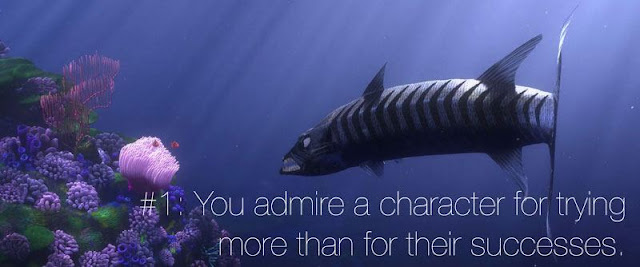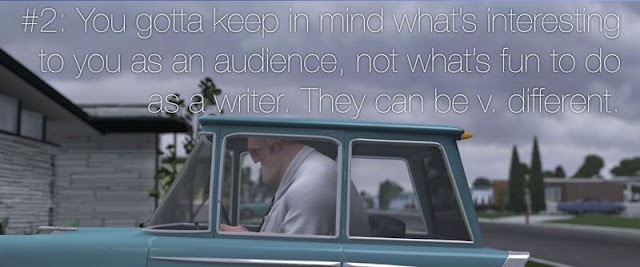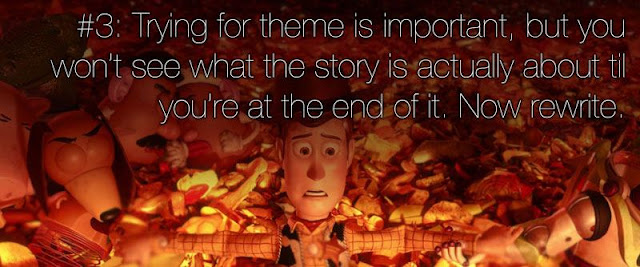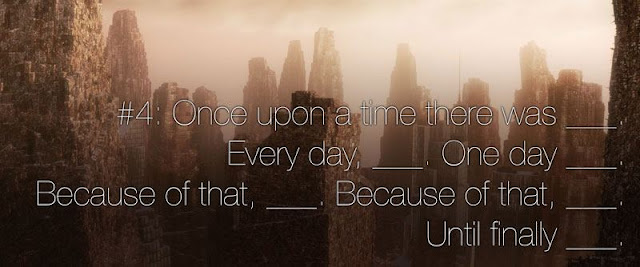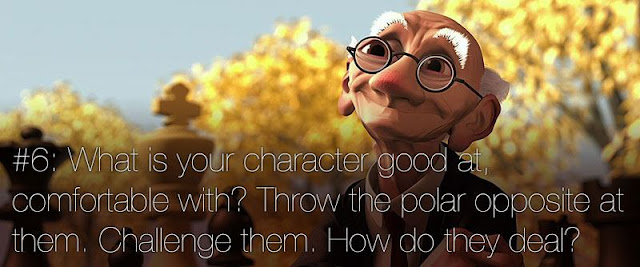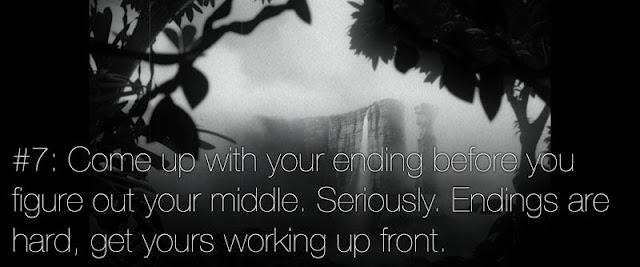Okay, first of two posts this week, as promised…
So a while back at the LA Writers Coffeehouse we were going to talk about criticism. All the directions it can come from. What it’s like from either end. How to put it out there. How to receive it. We never got around to it there, so I thought I’d talk about it here.
Just to be different, though, let’s approach this from the tougher angle, in my opinion. Giving criticism.
 I know that’s hard to believe—that giving criticism can be the hard part. I mean, just check out any social media site. Over the past week or so there’ve been tons of people offering critiques of… y’know, different stories. Often for free. Usually unasked for.
I know that’s hard to believe—that giving criticism can be the hard part. I mean, just check out any social media site. Over the past week or so there’ve been tons of people offering critiques of… y’know, different stories. Often for free. Usually unasked for. And, most of the time, not very good.
Criticism—actual, constructive criticism—is a bit more than ranting online. It’s being able to state quantifiable, true, relevant facts about a work. There are a lot of folks who consider themselves critics who really just… spout their opinions a lot.
I saw one of these recently. Directed at me. Someone had read one of my books, loved the first two thirds, but then it had an “action-packed, nonsense finale” that the reader didn’t like. Which was a shame, because the rest of the book had been pretty good.
I’ve talked a bit about this before, one of the first things to learn about giving criticism.. Me liking or not liking something isn’t really criticism. It’s irrelevant. That’s just a subjective opinion.
This can be a tough thing to figure out sometimes. It took me years to be able to separate my opinions from actual facts and observations about the story I was reading. There are a lot of books and movies I didn’t like, but I can also acknowledge that doesn’t make them bad. It just means they’re not for me.
So that’s lesson one in offering good criticism. Separating my opinion from actual facts. Anyone can say “this sucks.” If I’m trying to offer valid criticism, I need to be the person who can explain whyit sucks.
And remember—“I didn’t like it” isn’t a reason.
 This should bring us to the second point about giving criticism. It should be constructive, not destructive. The goal isn’t to rip something apart, it’s to explain why and how it can be better. Yes, sometimes this might mean a couple blunt, harsh truths will need to come out. But even these don’t need to be designed to make the writer cry for weeks. If that’s why I offered to critique someone’s work, well… I’m doing this for all the wrong reasons.
This should bring us to the second point about giving criticism. It should be constructive, not destructive. The goal isn’t to rip something apart, it’s to explain why and how it can be better. Yes, sometimes this might mean a couple blunt, harsh truths will need to come out. But even these don’t need to be designed to make the writer cry for weeks. If that’s why I offered to critique someone’s work, well… I’m doing this for all the wrong reasons. Here’s a good rule of thumb. I shouldn’t point out problems if I can’t offer some kind of actual solution. This is also a good way to figure out if this is an opinion-vs.-criticism issue. It’s tough to change opinions, but if something’s actually wrong, it shouldn’t be hard for me to figure out some way to fix it.
Keep in mind, this doesn’t have to be a good solution. My editor—a very high ranking editor at Random House—freely admits he’s great at spotting problems, awful at coming up with solutions. But he’ll always have an answer whenever I ask about something.
And I shouldn’t offer these solutions unless the writer specifically asks for them—it’d be rude of me to start explaining how someone else should be writing their story. I mentioned helping a friend with her travel book a while back, and twice or thrice in the notes I’d point out an issue and say “I have an idea that might help with this—let me know if you’re interested.”
Which is a great lead in to my third point. If I’m going to offer criticism, I should know what I’m talking about. This is a tricky one, because it means a lot more than “I read a book every week” or “I’ve seen every Best Picture winner.” It especially means more than “I just want to read it early.”
 Being able to offer a good critical analysis means being able to juggle a lot of hats. I need some actual knowledge and understanding of different structure forms and grammar. I need to have read more than two or three “how to write a bestseller” books. It wouldn’t hurt if I’ve sat and thought about this knowledge and absorbed it a bit.
Being able to offer a good critical analysis means being able to juggle a lot of hats. I need some actual knowledge and understanding of different structure forms and grammar. I need to have read more than two or three “how to write a bestseller” books. It wouldn’t hurt if I’ve sat and thought about this knowledge and absorbed it a bit.And just book-learning isn’t going to cut it. I also need a lot of practical experience. Lots and lots of reading. Not just the classics. Not just the NYT bestsellers. Not just the “good” stuff. I need a broad-yet-solid background in the subject matter—no one should be asking me to read their hospital-based romance, and if they do I should be clear up front this isn’t quite my area of expertise.
There’s also an empathy issue here, too. I’ve mentioned a few times that writers have to have a good sense of empathy—if I can’t put myself in other people’s shoes, I’m going to have a tough time as a storyteller. Same goes for critiquing a story. I need to be able to see what effect the writer’s going for andbe able to predict how people are going to react to it. If I can’t do this, my whole critique is going to collapse.
And that brings us to the fourthand final point. This one’s going to sound obvious. If someone’s going to trust me with their work, if I’m going to tell them I’ll critique it… I should. They’re asking for feedback and I should make an honest effort to give it to them. There’s few things more frustrating for a writer than waiting weeks for feedback and getting a one line email that says “Yeah, I liked it. It was fun.”
And that brings us to the fourthand final point. This one’s going to sound obvious. If someone’s going to trust me with their work, if I’m going to tell them I’ll critique it… I should. They’re asking for feedback and I should make an honest effort to give it to them. There’s few things more frustrating for a writer than waiting weeks for feedback and getting a one line email that says “Yeah, I liked it. It was fun.”
You may laugh but… I’ve had beta-readers do that. Which is why they’re not beta-reading for me anymore.
Likewise, comments that are too vague to help… don’t really help. I shouldn’t be writing things like “I saw a couple typos—you’ll probably catch them next time through.” Again, if I’m doing a critique, I should be noting all this stuff. Getting caught up in it isn’t an excuse—I’m not supposed to be reading this for fun. I should take my time and do it right. As the man says (paraphrased), treat them the way you’d want to be treated.
Now, with all that said… here’s two positive things about giving criticism.
 Oneis that it doesn’t need to be stiff. Unless I’ve been hired as a professional, I’m reading/critiquing for somebody I know. Possibly someone I even consider a friend. I can have fun with this. It can be conversational. It can be funny/snarky/flirty whatever. I don’t need to change my relationship with someone to offer them criticism. They want it from me, not from Professor Huffy von Formalnotes.
Oneis that it doesn’t need to be stiff. Unless I’ve been hired as a professional, I’m reading/critiquing for somebody I know. Possibly someone I even consider a friend. I can have fun with this. It can be conversational. It can be funny/snarky/flirty whatever. I don’t need to change my relationship with someone to offer them criticism. They want it from me, not from Professor Huffy von Formalnotes. Twois that… well, I don’t have to read it all. No, I don’t. Really. I’m not getting paid, I’m not doing this as part of a formal submission… I don’t need to read all 815 pages.
At least three or four times I’ve read books for friends who wanted feedback and forty or fifty pages in it was clear there were… inherent issues. Things that weren’t going to change. Things that were going to kill the book’s chances if an editor or agent read those first fifty pages. So I stopped there. I gave them all the notes I’d made up to that point, and then explained the bigger problems I was seeing. And that was it. My time is valuable—and so’s theirs. They don’t need to read twenty pages of notes from me repeating the same things over and over and over again.
And again.
There you have it. Some tips to giving better criticism. Maybe even a few tips about dealing with it if you read around the edges a bit (and follow some of the links).
Next time… well, we’re closing in on the holidays, and after all this criticism we could probably talk about some good stuff, yes?
Until then, go write.


